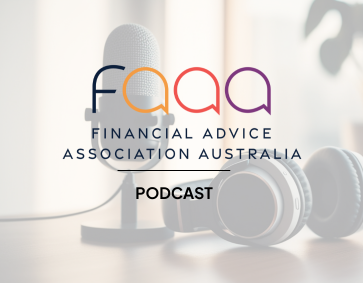Ecstra Foundation’s inaugural National Financial Wellbeing Summit last week highlighted the growing support for a nationally coordinated financial strategy as way of improving Australians’ financial and overall wellbeing.
The event emphasised the importance of building an integrated approach to financial wellbeing by supporting individual financial capability, while also addressing the broader systems, policies and market structures that shape people’s financial lives.
Bringing together leaders from government, business, education and community sectors, the discussion was focused on practical approaches to help build a better financial future for all Australians.
With an address from the Assistant Treasurer and Minister for Financial Services, Hon. Dr Daniel Mulino MP (pre-recorded), and a keynote delivered by ASIC Commissioner Alan Kirkland, sessions examined the drivers of economic inequality, the balance required between regulation and education, and how greater cross sector collaboration can influence financial, mental, and social health outcomes.
A key focus was on the importance of embedding financial education across schools, homes, and workplaces, to ensure young people develop the skills and confidence they need to make informed financial choices at key life stages.
Ecstra Foundation CEO Caroline Stewart, said the Summit came at a time of national momentum around improving financial wellbeing and literacy, particularly for young people.
“There’s increasing demand for practical, engaging financial education. We know that starting money lessons early builds lifelong knowledge and capability, and programs like our own Talk Money school workshops are helping normalise these conversations in classrooms and at home.
"Australia had been a leader in this space for many years. It was clear from the Summit there is strong support for Ecstra’s call for a more coordinated, national approach to financial capability. This would connect education, policy, and community initiatives to help every Australian build lasting financial wellbeing” she added.
Speaking at the Summit, Roset Khair, Vice President of Economics and Business Educators NSW, a leading advocate for financial literacy education, said there is growing support for schools to embed financial capability in the classroom.
“Financial literacy is an essential life skill and a foundation for overall wellbeing. Teachers see first-hand the positive impact when their students can connect financial concepts to real world decisions.
“Supporting schools-based programs are vital because they provide schools with curriculum aligned resources and tools to teach these skills effectively, while helping to build a culture where learning about money is normal and empowering,” she added.
Ms Stewart said that the Summit is an opportunity to connect classrooms, workplaces and communities with broader systems change.
“Talk Money is just one part of a bigger picture, to ensure every Australian has access to financial education, and that the systems around them support financial inclusion and wellbeing. Events such as the Summit show what is possible when education, policy, and community come together with shared purpose.”
Speakers at the Summit included:
- Dr Cassandra Goldie AO, CEO ACOSS
- Georgie Harman AO, CEO Beyond Blue
- Miles Larbey, OECD’s head of financial consumer protection, Education & Inclusion Unit
- Leah Bennett managing director, First Nations Foundation
- Prof Roslyn Russell, RMIT
- Effie Zahos, 9News money editor
- Janet Liu, group head of social impact and community partnerships ANZ
- Xavier O’Halloran CEO, Super Consumers Australia
- Roset Khair, vice president, Economics and Business Educators NSW
- Phil Gardner, CEO ABCN
- Gerard Brody, commissioner and chairperson, Essential Services Commission Victoria
- Michelle Wright, deputy head of communications and education, RBA
- James Kirby, associate editor – wealth, The Australian.












